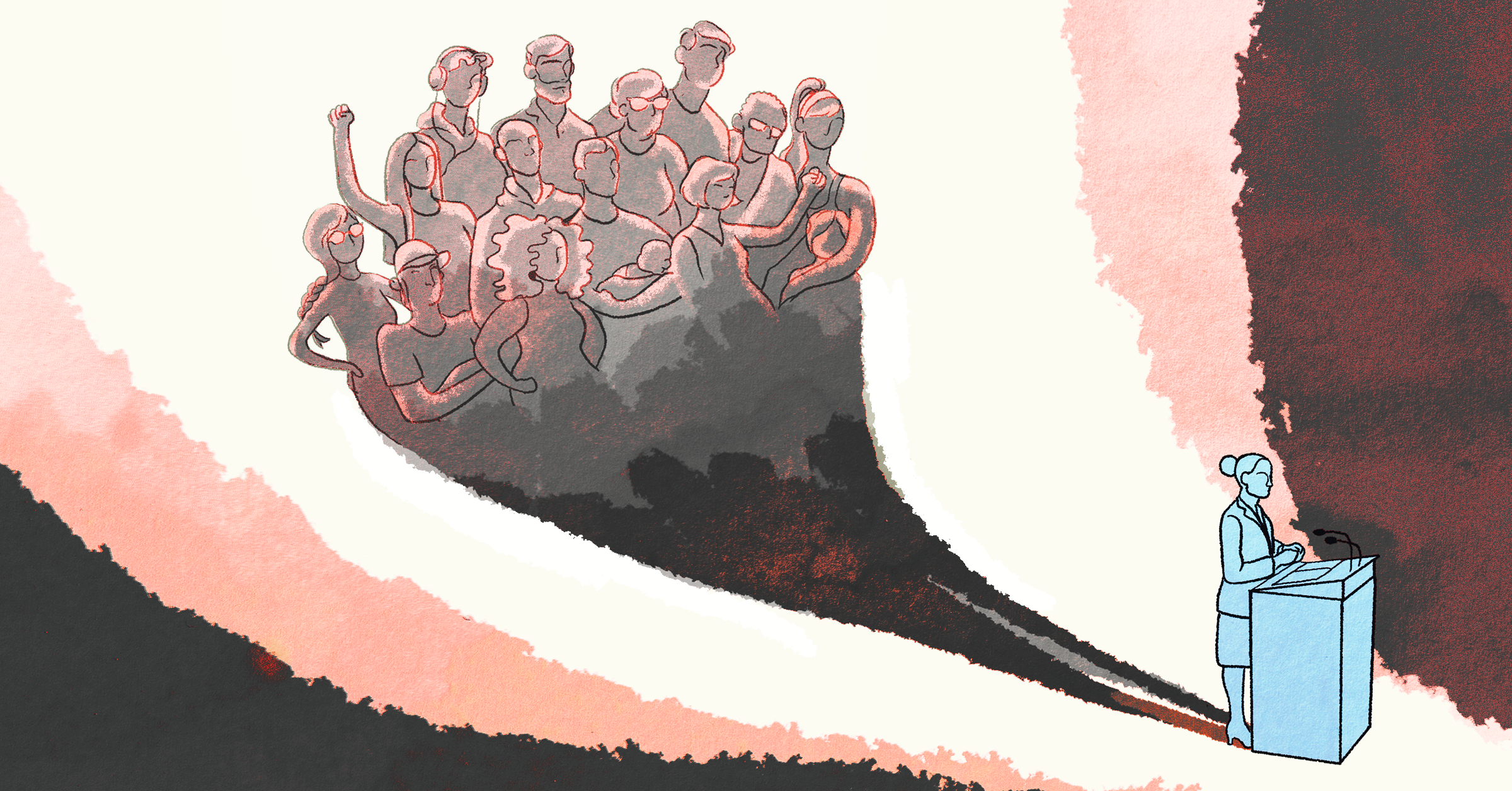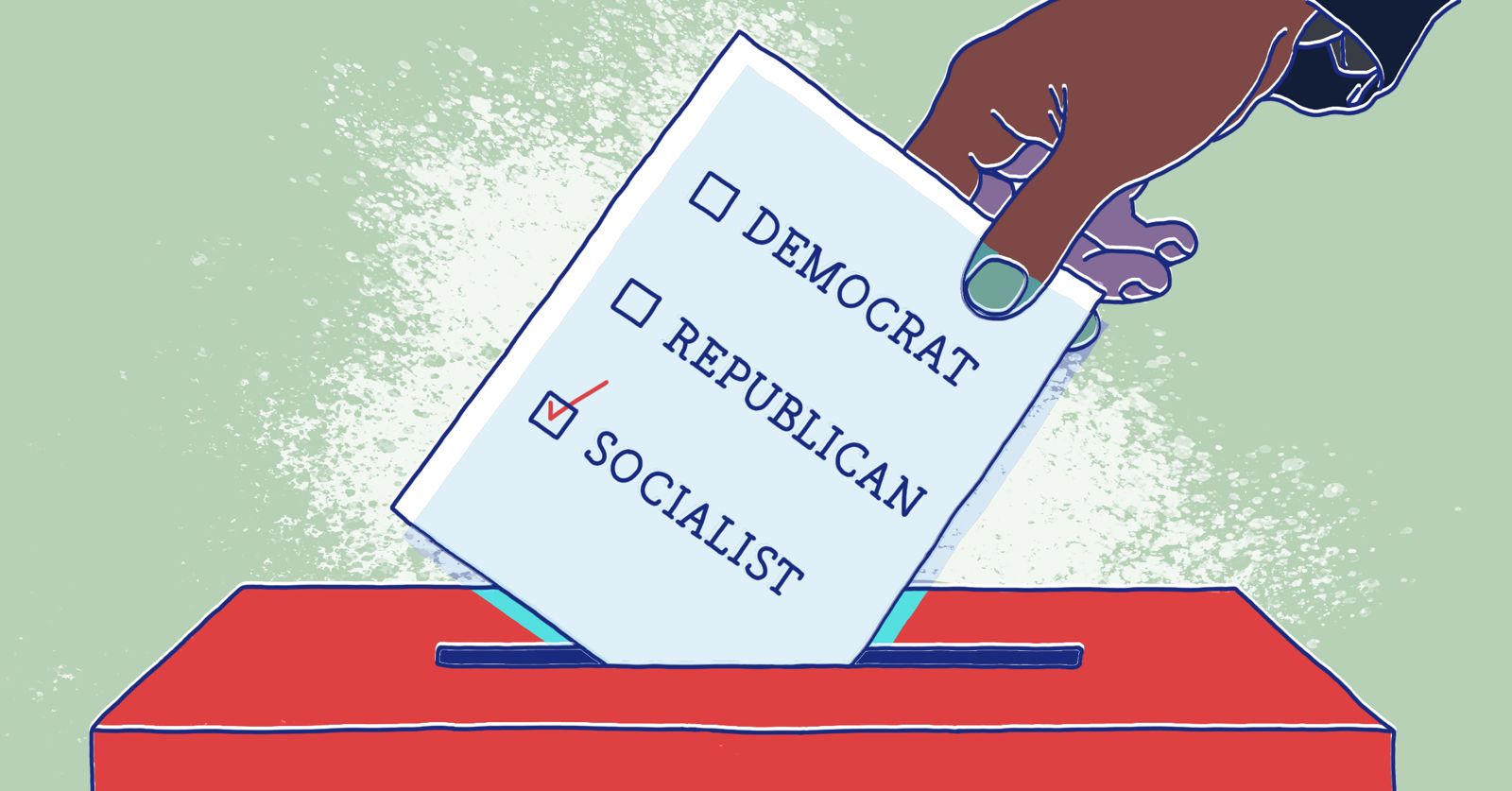From New York to Florida to California and beyond, Democratic Socialists of America (DSA) members have run for and won local, state, and national offices, gaining an important foothold in U.S. politics.
These impressive victories raise new strategic questions for socialists. One critical question revolves around how we use our newly-won offices. Specifically, how can we create structures that make it possible for DSA members who are elected officials to serve and grow the socialist movement? It is a question we must answer if we want to use electoral politics as a tool for fighting capitalism.
And it’s a live debate. In the current 2022 New York City election cycle, for example — under pressure from Democratic Party leaders — NYC-DSA’s elected incumbents have so far declined to endorse as a bloc all of DSA’s candidates.
When our elected officials don’t act together as a team, we’re setting a bad precedent for future endorsements and socialist electoral politics more generally. Moreover, if major strategic decisions like the one made in NYC-DSA have to be made, they should only be made through a collective, democratic membership discussion. Making these decisions in small committees where votes and meeting minutes are private makes us weaker.
Decisions like the one made in NYC-DSA are not the fault of any one person; they are the product of decision making that is too insulated from general membership. A socialist elected official will always face contradictions that may require them to compromise to further our larger goal. But how they resolve these contradictions deeply impacts our entire organization, and therefore should be determined by our membership. If it is not, we risk harming our long-term goals. Ultimately, member democracy and openness make mass membership organizations like DSA stronger.
The Challenge for Socialist Politicians
Socialist politicians face a challenge other legislators don’t: they’re up against the power of the capitalist class, represented by both major parties. Socialists seek to pass laws that will transfer power from the ruling class to the working class, and we know capitalists will fight tooth and nail to stop us from doing that.
That’s why many forces, inside and outside legislatures, will seek to “divide-and-conquer” socialist politicians. By pitting us against one another, capitalists and their friends in politics hope to make us much weaker. They might try to get our politicians to break ranks, for instance, by threatening to withhold important committee assignments or derail their legislation unless they do what elites want.
But we can’t acquiesce to this kind of bullying. It’s precisely the power of our politicians to stick together in this situation that makes them strong.
We can only resist attempts to divide and conquer if it is clear that DSA members in office vote as a disciplined bloc and are directly accountable to DSA membership.
The Power of a Bloc
When former New York Governor Andrew Cuomo was first facing sexual assault allegations, his staff was desperate to find legislators who would defend him. In emails released during the Attorney General’s investigation, it was revealed that Cuomo’s staff did not even consider contacting DSA Assemblymember Zohran Mamdani because “Zohan (sic) is DSA so we don’t have a play there.” That’s the power of the DSA bloc in action.
There is no doubt the ruling class will make threats, run smear campaigns, and try to punish DSA members for refusing to fall in line. But these tactics will be ineffective if DSA elected officials are only accountable to the democratic decisions of their chapters. The democratic nature of a socialist membership organization (not a “volunteer” organization) is what makes our politicians strong. When DSA elected officials are accountable to their membership, they operate with the strength of a 90,000-plus member socialist organization behind them.
It must be clear to the political establishment that an attack against a DSA elected is an attack on all 90,000 plus members.
Democracy and Open Debate Makes Us Stronger
DSA-elected officials will only be able to take immense risks for our movement if they know the membership is ready to mobilize to support our priorities and defend them from attacks.
But for that to happen, DSA members must know about and have a meaningful say in what their electeds are doing, which means they must have opportunities to be engaged in the decision-making process. A culture of secrecy, where only some leaders are able to contribute to decisions around how socialist electeds navigate being in office pulls us further away from that each day.
Instead, leadership should operate in a “glass house”: few, if any, conversations about the legislative process should be kept from members before decisions are made, and decision-making meetings should be open to all members to observe. Though it is sometimes tempting, leaders must not hide behind secrecy or bureaucratic organizational structures that confuse where decision-making is actually happening.
This may mean disclosing information the political establishment has tried to hide, which in some cases could result in retaliation toward our electeds or our organization. This is just one of the many risks of using electoral politics to advance the socialist project that chapters must take into account when devising their electoral strategies.
Many political questions should be viewed as issues for a chapter-wide debate that all members (including elected officials) participate in. Building socialism is a collective project, not an individual one. DSA’s elected officials should not be seen simply as advocates for socialism or representatives of DSA priorities; they should be seen as fellow members of their DSA chapter, comrades in the fight for socialism.
The Path Forward
The legislative, political, and strategic direction of a DSA chapter should be determined by the membership and carried out by its elected officials. The inevitable compromises and contradictions that DSA elected officials will deal with should be viewed as tactical issues to be solved by the chapter democratically. Many major political decisions made by elected officials, from their legislative priorities and which candidates to endorse to how to pass a bill, should be questions the elected officials put to the chapter.
And once deliberation on these questions happens, DSA elected officials should follow the decisions of their chapter even if they don’t personally agree. This kind of collective decision-making process will allow us to support our socialist electeds in navigating the compromises and contradictions they face, while also building real, deep strength to carry out the socialist project.
Of course, DSA electeds shouldn’t just be accountable to DSA. They should seek to advance the interests of their working-class constituencies and the working class as a whole. But DSA chapters should create platforms that they can expect many working-class people to get behind, and make clear that our support for a candidate or elected is contingent on their commitment to our program.
What is most important is that there is a democratic process of decision-making, and all DSA members — rank-and-file, leadership and elected officials — can participate and agree to implement the results. Not every minute decision needs to be debated by the rank-and-file membership — but certainly the broad strategy for how we build legislative power and major political questions must be discussed and debated by members. The future of our socialist electoral project depends on it.




